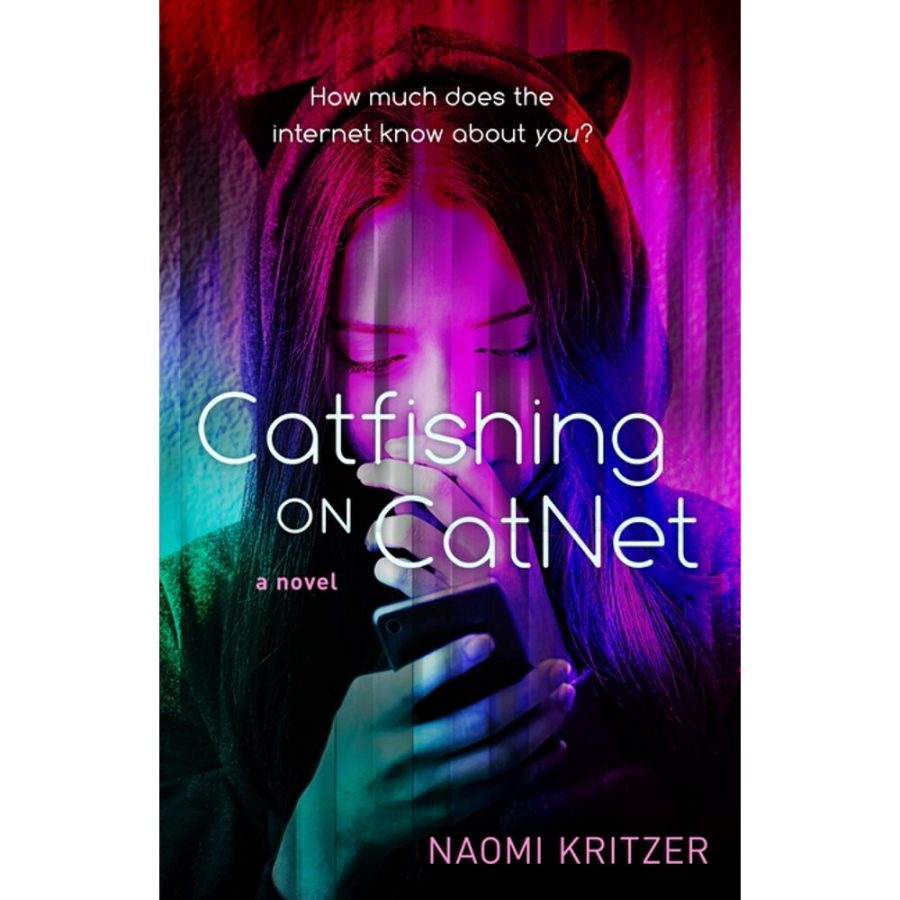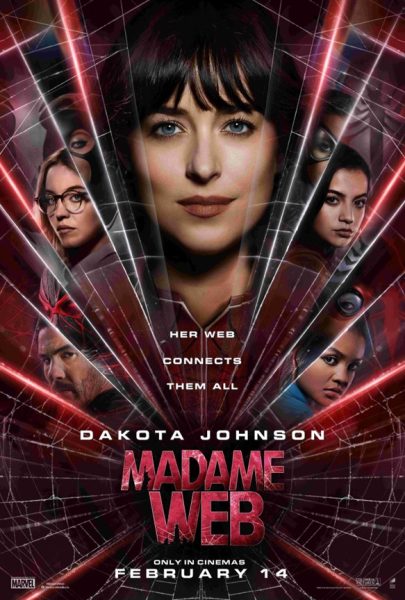Identity and AI: A Review of Catfishing on CatNet
April 4, 2022
The front cover tagline of Naomi Kritzer’s Catfishing on CatNet asks: “How much does the internet know about you?” Considering the current digital age, which features AI tracking the internet habits of consumers for the purpose of building algorithms and ad targeting, relatability is hinted at before even opening the book. Inside, the relevance of what it means to be a teenager on the internet is expanded into the sci-fi territory of what if: what if AI develops sentience?
There is often a tendency for media to fixate on the more terrifying ramifications of advanced technology. Kritzer takes a more nuanced approach in Cafishing on CatNet by focusing on one specific AI known as CheshireCat, who is the admin of the social media site CatNet. On CatNet, users are assigned personalized group chats called Clowders. It is in one of these Clowders that CheshireCat, the protagonist Steph, and the rest of the online human characters meet to discuss the issues of navigating life as LGBTQ+ youth and their frustrations with the adults in their lives. CatNet is Steph’s only consistent social outlet due to her mother frequently moving them in fear of Steph’s violent father tracking them down. As such, her teen angst is compounded by secrecy and the constant looming threat of danger. When it becomes clear there are much more harrowing mysteries shrouding Steph’s past than meets the eye, that danger comes to a head. Her offline friends, CheshireCat and her Clowder team up to troubleshoot solutions for Steph, as well as a conundrum surrounding CheshireCat.
Each chapter is a change in story perspective, switching between Steph, AI and the Clowder. This offers insight into Steph’s introspections about her circumstances and relationships with characters online and off, as well as CheshireCat’s interpretations of human behavior and detailed methods of their interferences into the real world. In organizing the book this way, Kritzer allows readers to develop an emotional attachment to the predominantly online characters. Investment in CheshireCat, specifically, becomes an emotional conflict. Readers are faced with having to consider the ethical dilemma of turning a sentient AI loose among unsuspecting humans, with the quandary of whether CheshireCat’s level of sentience (and the fact that they have wants and interests of their own) constitutes as actual autonomy, identity, and personhood.
Catfishing on CatNet manages to maintain an engaging balance between the ever-relevant issues of internet safety and the importance of online community for marginalized youth. It is a novel likely to be enjoyed by any young person who has ever felt like an outsider and found friendship in online spaces, as well as anyone who has enjoyed the works of Philip K. Dick or the TV series Black Mirror.








